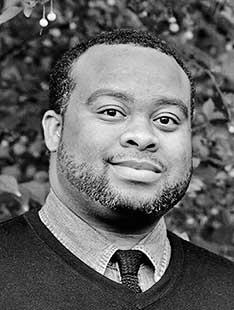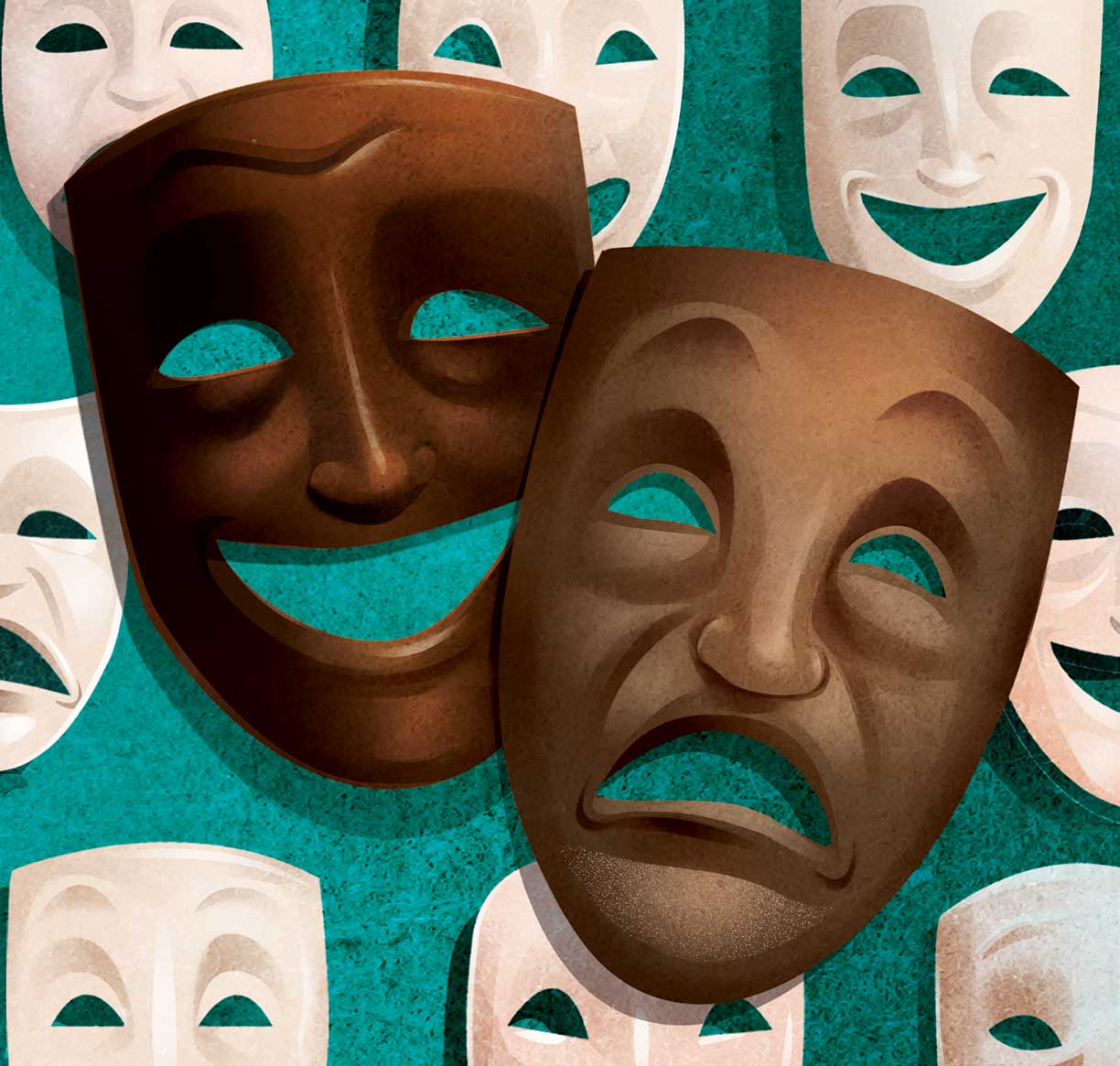Essay: Seeking a New Anti-Racist Normal in Theater

During my MFA studies in theater management and producing at Columbia University I was taught by premier Broadway and off-Broadway producers and industry leaders. Our classes took place in professors’ offices overlooking Times Square, and as I took in the billboards of the Broadway shows they helped to produce, I never considered that so much of what I saw was controlled by white people. Indeed, most of my education and training in theater was exclusively entrusted to white people. I convinced myself that being among the few in these spaces of influence and power meant that I had to assimilate, learn the tools and secrets to success, and simply become the change I wanted to see. However, as I applied to entry-level jobs at a myriad of theater companies, everyone I interviewed with was white, and I had to confront the fact that advancement in theater is an inherently racist system that significantly serves white people and perpetuates itself with no accountability for the erasure of Black, Indigenous, and People of Color (BIPOC).
After grad school, I became the general manager of Two River Theater in Red Bank, New Jersey. Two River was a member of the League of Resident Theatres (LORT), a collective-bargaining association representing more than 70 theaters across the country, which gave me access to industry leaders with the titles and careers that I wanted. At my first LORT conference, I did not see one managing director of color. I realized that the higher I climbed in this business, the rarer it became to find people who look like me, and, yet again, I was the only one in the room. As the only person of color in these spaces, the experience of engaging with my colleagues around topics of equity, diversity, and inclusion (EDI) quickly turned into a feeling of entrapment: Now that you have made it this far, please represent all Black people or speak for all people of color. A feeling of isolation took root, and I believed that being a person of color endeavoring to lead in theater would be a long and lonely journey. Thankfully, I was wrong.
I realized that the higher I climbed in this business, the rarer it became to find people who look like me.
In my next career move, I became the assistant dean/general manager at the Yale School of Drama/Yale Repertory Theatre. As I enter my fourth year in this role, I am part of an organization and community fiercely committed to dismantling oppressive inequities in our field. The School and Yale Rep have undertaken significant steps to address their culture and practices by requiring employees and students to participate in Beyond Diversity workshops delivered by Carmen Morgan and her company, artEquity, which trains and consults with organizations on creating and sustaining a culture of equity and inclusion through the arts. To hear leadership and my colleagues actively partaking in difficult conversations to make lasting change was unlike anything I had experienced in practice or education. The students are actively engaged in evaluating and demanding change from leadership, and our culture continues to encourage that agency needed for true change and accountability. Though we still have a lot of work ahead, I no longer feel that I must carry the weight of being the only one in the office to challenge racialized inequities and advocate for equity, diversity, and inclusion. Over the past five years, the students, staff, and faculty have conducted a cultural assessment and devoted time and resources to continuously extend EDI training to our community, our curricula, and our professional practices.
I feel an obligation to challenge the practices that are preventing our industry from being prepared for the innovations needed for the next generation of theater’s BIPOC leaders. The only way I know how to do that is to consistently call out oppressive and white-supremacist practices that have disproportionately affected BIPOC artists and managers in theater. The first of these practices is a failure of white leaders to proactively and authentically recruit and engage with emerging BIPOC leaders across the industry. I must also call out the educational institutions devoid of BIPOC faculty or leadership in their programs. Centering white people, white narratives, and exclusive white leadership in theater-producing and education is a perpetuation of systemic racism, and the absence of BIPOC leading artists, practitioners, and resident faculty members in 2020 is nothing short of unethical.
I must call out our industry, which has long needed a structured, resourced commitment to the development and recruitment of BIPOC talent. “There just aren’t any qualified people of color in the pipeline”: I have heard this excuse before. When I first entered an executive-search process as a job candidate, I faced an all-white-male search committee composed of board members who asked me with straight faces how I could “fix” their theater’s diversity problem and who touted first how much they “value” diversity before discussing my qualifications. As a young, Black search candidate I have always questioned whether my role in these recruitment calls is a checked box for diversity or a constant reminder of the numerous barriers to entry for BIPOC leaders. The tradition of regional and commercial theater in this country is built on centering the wealth and presence of white people at every level — from donor to board member to theater owner — who do not question why an industry dedicated to the art of empathy, history, and complex human narratives has failed to recognize and rectify its own implicit and unconscious bias.
... [A]n industry dedicated to the art of empathy, history, and complex human narratives has failed to recognize and rectify its own implicit and unconscious bias.
I must call in the white gatekeepers controlling pathways to executive leadership, theatrical training programs, and nonprofit board seats: They must interrogate problematic education, governance, and workplace cultures and do the work to build diversity at all levels of their institutions. They must consider and model true allyship. They must risk their own comfort, privilege, and power for the sake of people at an overwhelming historic disadvantage. People in positions of power who are resistant to this work or are too overwhelmed to deeply invest in anti-racism and EDI are not the leaders our industry needs right now. Race should no longer be a predictor of success, and I call on my BIPOC colleagues who feel the same to be explicit in denouncing racially abusive spaces that have never been psychologically safe for us to work in and thrive as professionals and students.
As a producer, I long to produce and promote Black people’s stories as more than trauma porn, anachronisms, or the perpetuation of highly racialized, stereotypical narratives that are only staged in February. I think back to 2007 when I saw, for the first time, an all-Black cast in a professional production of Passing Strange at the Public Theater in New York. That was the closest thing I had ever seen to my lived experience in the shape of a musical — it was so uplifting, I saw it five more times. Similarly, Lydia R. Diamond’s Stick Fly, which premiered at McCarter Theatre when I was an undergrad, showed me a Black family living in Martha’s Vineyard grappling with the same kind of modern “living room” drama that I saw repeatedly in white plays. Black people and our artistry span so much further than a reaction to the systems of this country’s oppression and racism. We come from joy and traditions rooted in this country and many others that celebrate and exalt liberation and happiness. The dignity, excitement, and innovation of Afro-futurism should not feel so far from now. This is why I make theater.
Early on in my career I was encouraged to be less vocal on these and other issues for fear of never being hired by the boards and industry leaders I criticized. I was afraid to address the harmful racial abuse I suffered from white colleagues and board members convinced they were putting me in my place. Today I find resolve in rejecting those fears. I would like to live without fear that my skin color will cost me an opportunity or, worse, my life. Two days before my Princeton graduation, Carmelita Becnel, a mentor and Black staff member in the theater department, encouraged a small gathering of theater students to “Be fearless.” I carry this offering with me wherever I go. The next generation of theater leaders and educators deserve to boldly and fearlessly pursue new forms of innovative and inclusive theater that are not built on a foundation of racist practices. This should not be a radical thought.












No responses yet